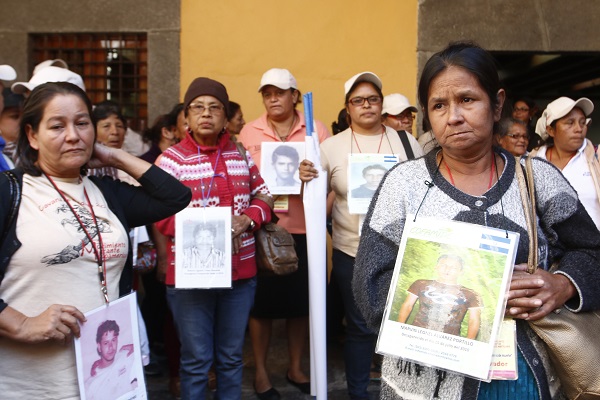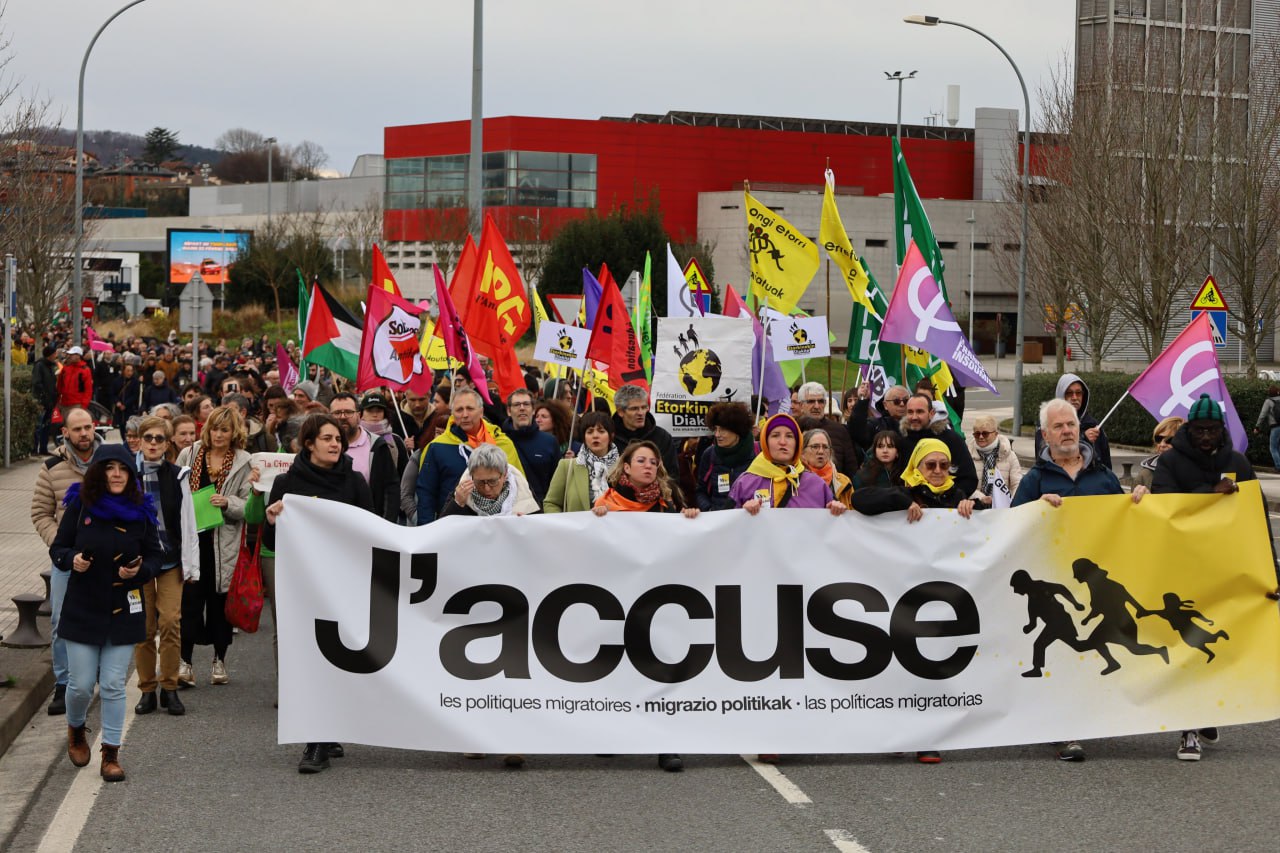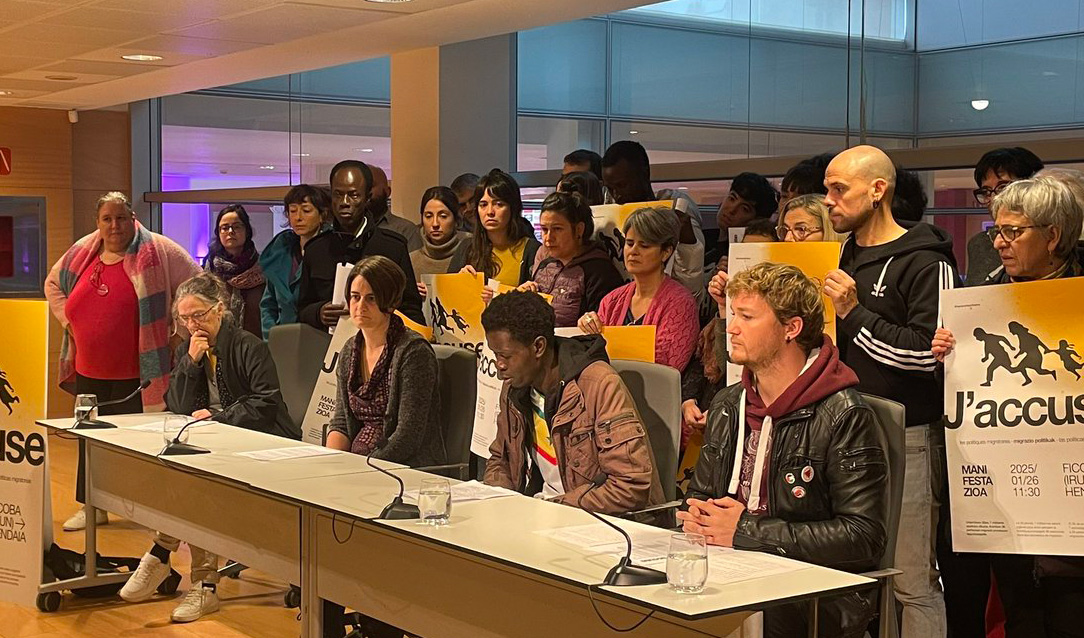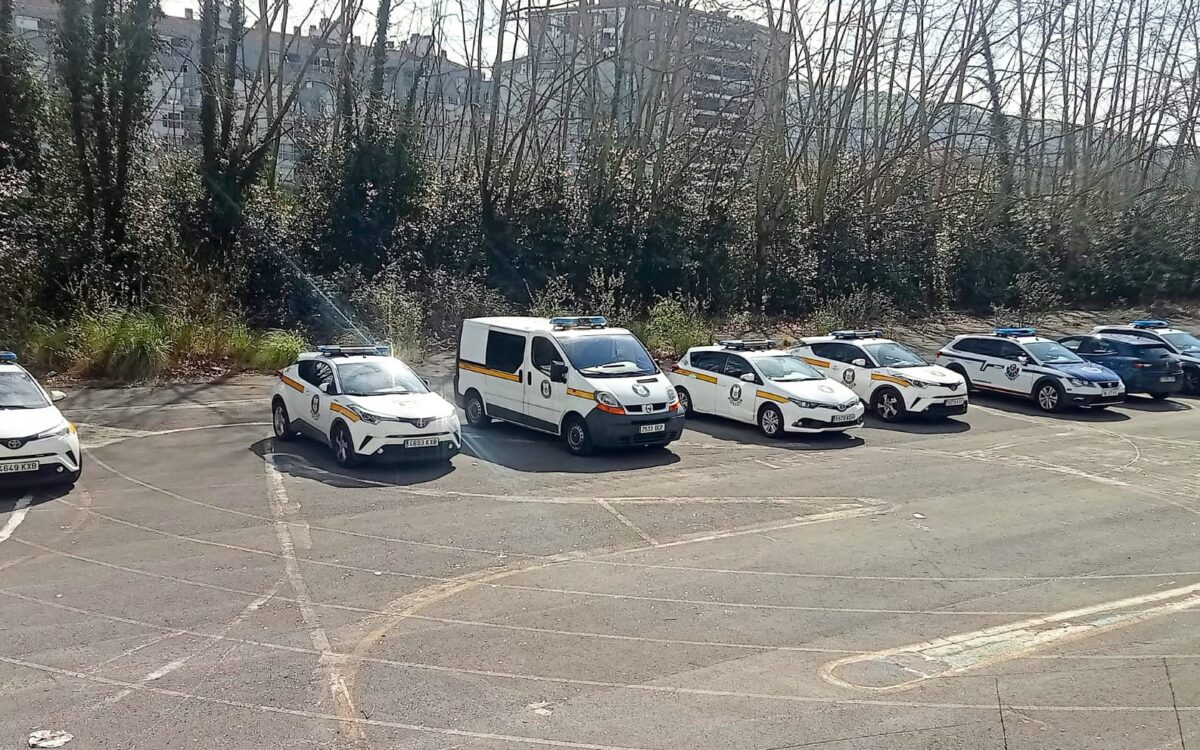Mothers of Missing Migrants Seek Migrants from Guatemala to Mexico
- On 3 December the 12 caravan of the Mothers of Missing Migrants from Central America (Tapachulas) ended in Chiapas (Mexico), after travelling in 18 days 3,800 kilometers by bus and in 30 cities searching for missing children's remains. Over the past 10 years, more than 70,000 men and women have been lost in their attempt to reach the United States, many of whom have been killed by fatigue or abandoned by the coyotes.

The 2016 caravan has managed to regain contact of 41 parents – mostly mothers – with the son or daughter lost by four, as well as the two sisters who have not been known for 37 years. In these twelve years, the Mesoamerican Migrant Movement MMM has achieved a total of 269 meetings thanks to the solidarity movement organized with the excuse of the caravan of parents.
MMM seeks to find the missing migrants, who have multiplied among those who have embarked on an increasingly dangerous route through Mexico through Honduras, Nicaragua, El Salvador and Guatemala. The caravan members have searched for the remains of their relatives in 11 Mexican states in hotels, canteens, government offices, prisons, shops and village squares around the world. At the same time, the association chaired by Marta Sánchez Soler has guaranteed them the echo of a serious problem that is forgotten too often in the mainstream media.
This year the caravan has touched for the first time the coastal towns that increasingly use clandestine migrations, the banks of Oaxaca and Chiapas, Salina Cruz, Puerto Madero, Barra San José... Juchitán stops in the mass grave of unidentified migrants who have escaped land-based dangers and violence and who have choked to death in their attempt to reach the United States by sea.
Last July three migrant children were drowned on the beach of the Barra de San José. The caravan also celebrated the memory of Berta Cáceres, the Honduran Aboriginal assaulted leader, and asked the authorities to investigate his death.
MMM has denounced in its final document that “from the Central American countries to the United States, in all of them there has been a significant increase in violence and violation of human rights since the establishment of the Southern Border Plan by lehendakari Enrique Peña Nieto in 2014, with the aim of preserving and financing in some way the flow of immigrants arriving from Mexico”.
The South Front has tightened control, care, fencing and militarization, forcing migrants to search for more expensive and dangerous routes. In them, families of immigrants are easy prey to criminals, mafias and corrupt agents of the states. Finally, instead of ensuring the safety of those fleeing violence and hunger abandoned in their homes in search of work and life, the State condemns them to hell where theft, extortion, sexual rape, trafficking in human beings and slavery prevail.
The caravan number 12, under the motto “We seek life in ways of death”, received in Córdoba, Veracruz, the visit of the scientific section of the Mexican federal police, offering to perform DNA tests to better search for the remains of their familiares.De the 41 parents, 18 agreed to take the test, as the others distrust the real will of the agents. One of the blood donors, Ana Zelaya, told the media journalist, "Let's not let ourselves know. “Every time we hear ‘the federal police’, we get allergic. What a pity we have lost all confidence in them! But what can I do? I don’t want them to lift me up again with a needle, but as we’ve climbed on this donkey, we’ll have to ride.”
The journalist has not recognised the agents outraged by the work: “Representatives of the Veracruz Attorney General’s Office, bureaucrats to whom this Saturday has touched them to work, who have prevented us from witnessing journalists on the excuse of ‘not spreading the tests’, in a room full of dirt...”. The other governors, representatives, mayors and other leaders have also committed themselves to “channeling the problem” to parents who do not believe in what is already there.
A full-blown illegal interest web
Arrests of illegal immigrants in Mexico have increased by 330% since 2011. The problem is that the objective of police control is not so much to trap criminals who are doing illegal trafficking, but to poor families who are in an irregular situation.
Various institutions and media have explained that in recent times other interested parties participate in police operations, such as the private and taxi guards of these districts, bus companies and drivers, railway officials... and thus fatten an inflated criminal industry around migration.
Last November, the International Observatory on Human Rights on the border between Guatemala and Mexico gathered the experiences of the groups and solidarity organizations operating in these regions. In a research study he has cited more than 600 testimonies that report the burglaries and violence committed against women, refugees and migrants.
In the interviews several people of the ethnicities mam, quiché, q’anjobal, kakchiquel, tseltal, tsotsil, tojolabal, zoque and chol living in the villages of the border have told these cases. Because the human floods themselves and the mafias that manage them also confuse those who live in the villages of the way, aggravating the major problems they already have - the collapse of traditional agriculture, the theft of land and the pollution caused by the mining and energy companies...
However, it is the poor citizens on the road who help them in an improvised way, unlike the authorities, that some organise themselves as they can. The women's group Las Patronas de Guadalupe, in Veracruz, has become famous, which from 1995 to the present tries to give food and drink to the people who cross the village on the freight train La Beast. Every day about 300 meals and bottles filled with water are thrown into fugitives that pass over the non-stop wagons.
The MMM partnership thus summarizes the essence of illegal trafficking that has destabilized the whole of Central America and Mexico: “We know how big the business agreed over the past five decades has been of the sale of slave labor expelled from their countries of origin, which is the source of real value and wealth of the capital companies of the countries that promote traffic. At the same time, through the incursion of the puppet government and in exchange for the traitors who are expelled, the consolation of receiving remittances from exiles [the monthly money they send to families] is left. These are the consequences that the economic policies derived from the Free Trade Agreements leave to both countries.”
It doesn't seem that Donald Trump, with his immigration policies, is going to really relax the hell of humanitarian smuggling in Central America.
Zutabe hau idazten nengoela, gaia aldatu behar izan dut, nire arreta osoa harrapatu dutelako Trumpen muga-zergek. Azalpen gutxi beharko duzue, leku guztietan da berria, Txinako produktuei %10eko zerga eta Kanadako eta Mexikoko produktuei %25eko muga-zergak jarri dizkie. Trumpek... [+]
To be honest, I don't know why I'm writing this. In today’s hostile environment, opinions of this kind are not well received. Perhaps LUZ will not publish this because it does not correspond to the opinions they have published so far (but if they have finally decided to publish... [+]
We Basques move our feet behind the witness of Korrika to proclaim that we want to survive as a Basque people in favor of our language, with the aim of the Basque Country we desire.
The tipi-tapa is the first step taken by a migrant person who leaves his homeland in Africa,... [+]
The poor management of the Valencian cold drop has led to a change in adverse meteorological alerts, as shown in the first season of "winter". Faced with the threat of rivers overflowing in Hego Euskal Herria, the indications for protection came along several paths, since no... [+]




















-(1).jpg)
.jpg)
